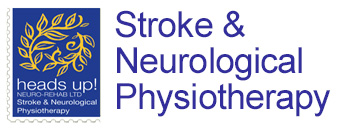Spinal Cord Injury
How an incomplete spinal cord injury can affect your life
An incomplete spinal cord injury can result in a wide range of sensory and/or motor impairments. Depending on the severity of an individual’s spinal cord injury, affected functions and recovery outcomes will vary. There is often potential for individuals with incomplete spinal cord injuries to recover some functions affected by injury.
Supporting your recovery after an acquired brain injury
Recovery from an incomplete spinal cord injury can continue for years and neurological rehabilitation may be beneficial for a long period following the onset of the injury. Ongoing specialist neurological physiotherapy could maximise your recovery and help you to achieve optimal functioning.
We can help you with many aspects of your movement control including your standing, walking, balance and posture, in order to maintain flexibility and to prevent osteoporosis and contractures. This may include the use of standing programmes.
What to expect from heads up
First assessment
- We will take time to listen to how your spinal injury has impacted your life, what difficulties you are experiencing and discuss what is important to you to focus on.
- We will assess how your spinal injury has affected you physically and emotionally and support you to formulate short- and long-term goals to work on.
- We will take time to explain what we are doing and to answer any questions you may have about your situation.
- We will provide some initial advice, treatment and guidance with exercises to carry out.
- We will discuss what your treatment plan may look like and offer treatment sessions that will suit your needs.
Treatment plan
Assessment is ongoing throughout the treatment process as your ability changes and progress is made.
Working with you, we will provide advice and create a tailored home exercise programme, whilst also helping you to prevent postural problems, maintain respiratory function, and reduce the risk of developing chest infections and muscle spasms, together with associated discomfort. To support this, we will also assess the most effective equipment and aids, tailored to your individual requirements.
After discussion, we may liaise with your GP or consultant about your medication and medical management. We may signpost you to organisations that can support you and/or refer you to other health professionals.
There will be regular opportunity to discuss your progress and your changing needs.
